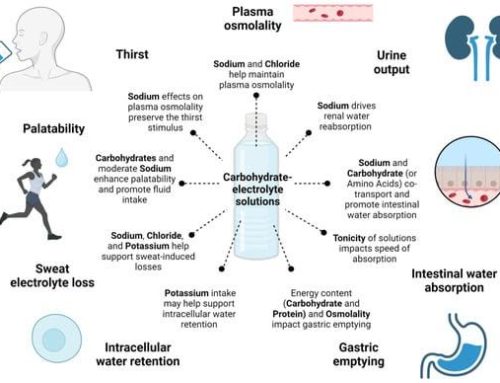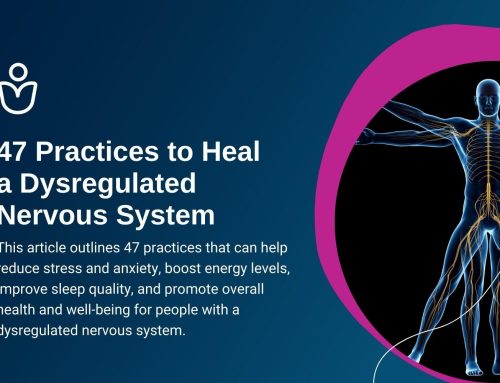Emotions such as anxiety, fear, worry, and grief are natural responses to life’s unfortunate, sometimes unfair, circumstances. But if you’re unable to cope with them and they significantly disrupt your daily life, then you must do something.
Bouncing back or overcoming a mental struggle isn’t a one-time flick-of-a-pill treatment plan. It’s a process that largely involves executing lifestyle changes to build up your mental fortitude. Here are some things you can do to boost your mental health.
1. Be Active
Staying active directly affects your mental well-being. A study shows that 1 in 9 cases of depression in adults could’ve been potentially prevented if only they accomplished the recommended 150 minutes of physical activity weekly.
Even light exercise helps lift your mood, alleviate stress, improve your focus, and boost your energy to get through the day. Make time to take a quick stroll, walk your dog, or use the stairs—anything that can keep you moving will positively impact your mental and emotional state.
2. Eat Nutrient-Rich Foods
What you eat doesn’t only affect you physically, but it also has direct implications on your mental health. Your gastrointestinal system, more commonly known as “the gut,” works closely with your brain. Research shows that a poor diet exacerbates mood disorders such as anxiety and depression.
Here are food choices you can avoid or minimize for mental health stability:
- Overly processed food
- Excessive sugar (e.g., soda)
- Alcohol
- Caffeine
- Energy drinks
- Deep-fry foods
- High-fat dairy products
For added benefits, pair a healthy diet with a mood and memory supplement to improve your focus, mood, and learning support.
3. Get a Complete Night’s Sleep
Never underestimate the power of a good night’s sleep to make your entire day instantly better. Much of your daily stress and worry comes from exhaustion or overstimulation. Sleep is your body and brain’s way to recharge and ensure optimal function.
There are more serious consequences to a sleepless night than feeling foggy or grumpy. Sleep deprivation impairs your response to stressors and increases negative emotions. You’ll find it hard to concentrate, perform cognitive tasks (e.g., learning and memorizing), and cope positively with inconveniences. What you consider as generally “a bad day” might root in poor sleep.
4. Keep in Touch

Isolation induces loneliness, which is linked to higher rates of depression, anxiety, and suicide. It’s also associated with increased risks of heart disease and stroke. Disconnecting yourself from others is dangerous to both your physical and mental health.
Constant connection and a strong support network are crucial to your overall welfare. Spending time with others watching a movie, playing games, and engaging in other activities grounds you in the moment. These will take your mind off what aggravates you, reducing stress and worry effectively. You’ll also be able to share your concerns and receive support and motivation.
5. Do What You Love
Do you have a special interest? What are your hobbies? Haven’t you visited some of your favorite places in a while? Engaging yourself in something that truly brings you joy deviates your focus from the daily pressures of life.
You can set a certain time of the day or week to take a pause. Then, engage yourself in something that makes you happy, be it doing art, singing, playing musical instruments, or cooking your favorite meal. When confronted with significant stressors during the day, take a quick break to do something that makes you happy to calm down.
6. Break Your Routine
Although it’s great to stick to a routine instead of dealing with unexpected situations, the repetition will soon lead to burnout. As the monotony weighs on you, you’ll lose interest and perform poorly in your job or at school.
Find ways to shuffle your schedule a bit. Incorporate a new everyday activity, such as changing your way home, eating at a new place, or enrolling in an interesting class (e.g., pottery, a foreign language, etc.). You can also take a brief vacation to escape the routine for a while and come back rejuvenated and ready to fulfill your daily tasks.
7. Practice Mindfulness
Mindfulness refers to being present and recognizing what’s in you and around you at this moment. Simply, it means heightened awareness of your thoughts, feelings, actions, and environment.
Mindfulness helps you navigate being overwhelmed. As you ground yourself in the moment, you’ll efficiently soothe your nervous system, put yourself at ease, and experience a wave of calm.
Here are some things you can do to practice meditation:
- Write a journal
- Keep a gratitude list
- Meditation
- Yoga
- Attentive listening
- Listening to music
8. Show Kindness
Sharing, extending a helping hand, volunteering, and other acts of kindness make you feel good. And when you feel good, you’re in a great mental state. Besides putting you in a positive frame of mind, kindness benefits you physically and emotionally. It boosts your mood and builds up your self-esteem, empathy, and compassion. It also lowers your blood pressure and stress hormones.
Being kind benefits you and those around you. As simple as being considerate, showing gratitude, returning a favor, or listening to someone goes a long way in making your mind and body healthy. You can also grant someone’s long-time wish. For example, if you know someone who wants to play lacrosse, a pair of men’s lacrosse cleats will change his life, and strengthen your mental health in the process.
9. Establish Clear Goals
It’s tough to navigate through life, more so if you have an unclear goal or purpose. Having a strong sense of what drives you to grind, earn, and succeed is essential to being mentally strong. It sharpens your focus and equips you to deflect negativities that threaten to hamper your progress. You’ll also have a clear vision of where you want to go, minimizing confusion and anxiety about the future.
Your goals don’t have to be grand. Just make sure they’re realistic and attainable over a certain time. Nailing down your objectives allows you to find meaning in your role or career and rewards you with an uplifting sense of accomplishment.
10. Seek Professional Help
No resource article is a better substitute for seeking professional help. You don’t have to reach a certain “condition” or need immediate help to consult with a trusted therapist. Whether you’re going through significant changes, dealing with stress, or just wanting to be in optimal mental shape, they’re licensed and better equipped to help you.
Goal: Mentally Fit and Strong
It’s impossible to live your best life without robust mental and emotional health. Keeping your mind in tip-top shape should be a self-development priority for you. This defines how you think, feel, react, and deal with all situations in life. Refer to the tips above to help you get started on developing a more resilient mind today.








Leave A Comment